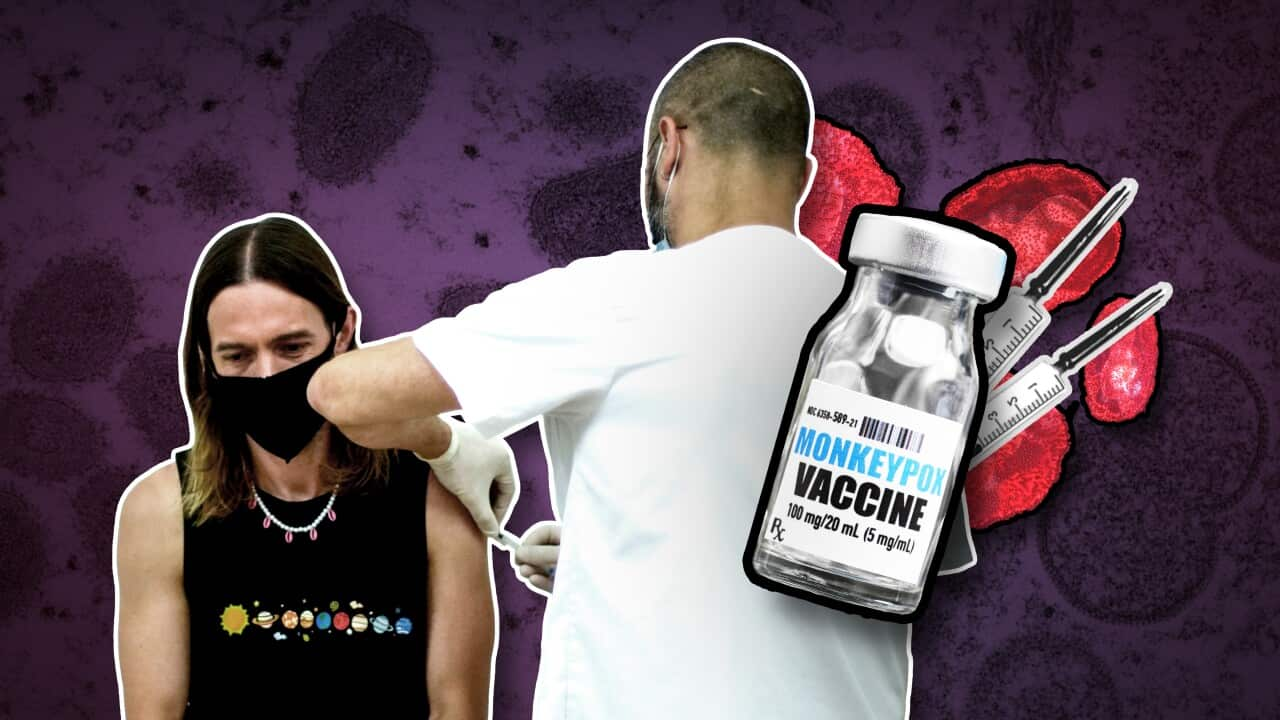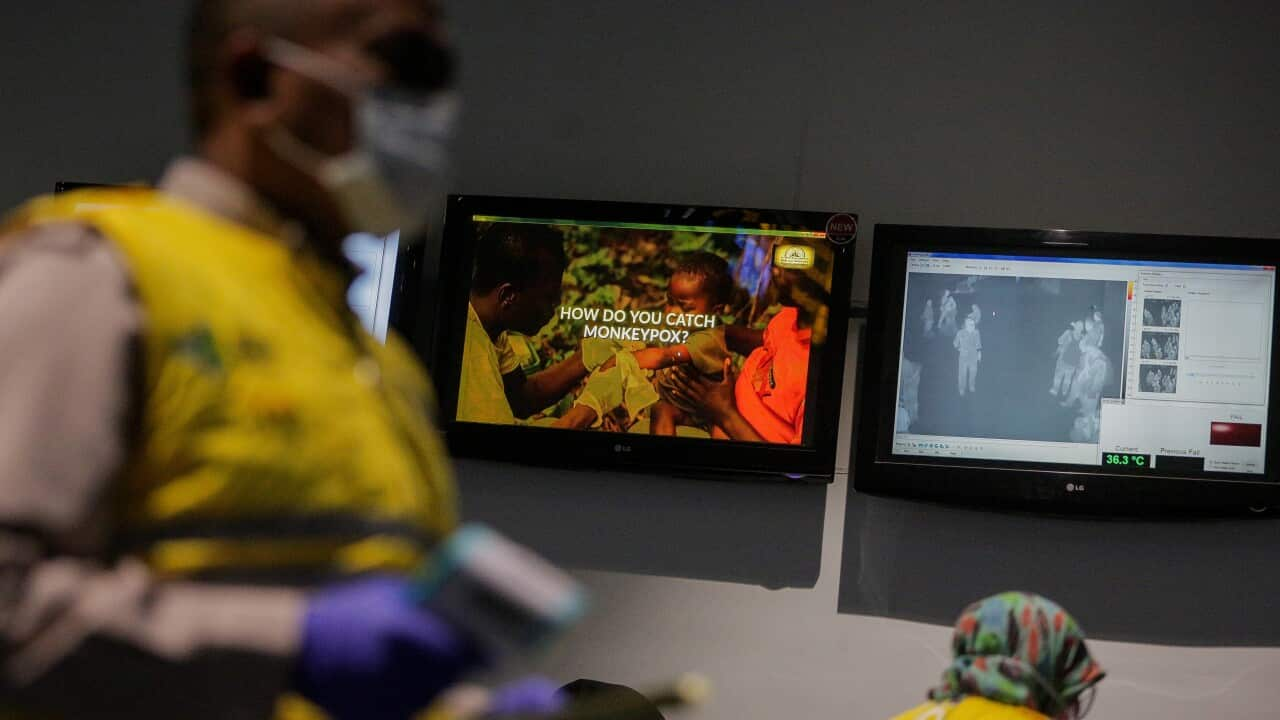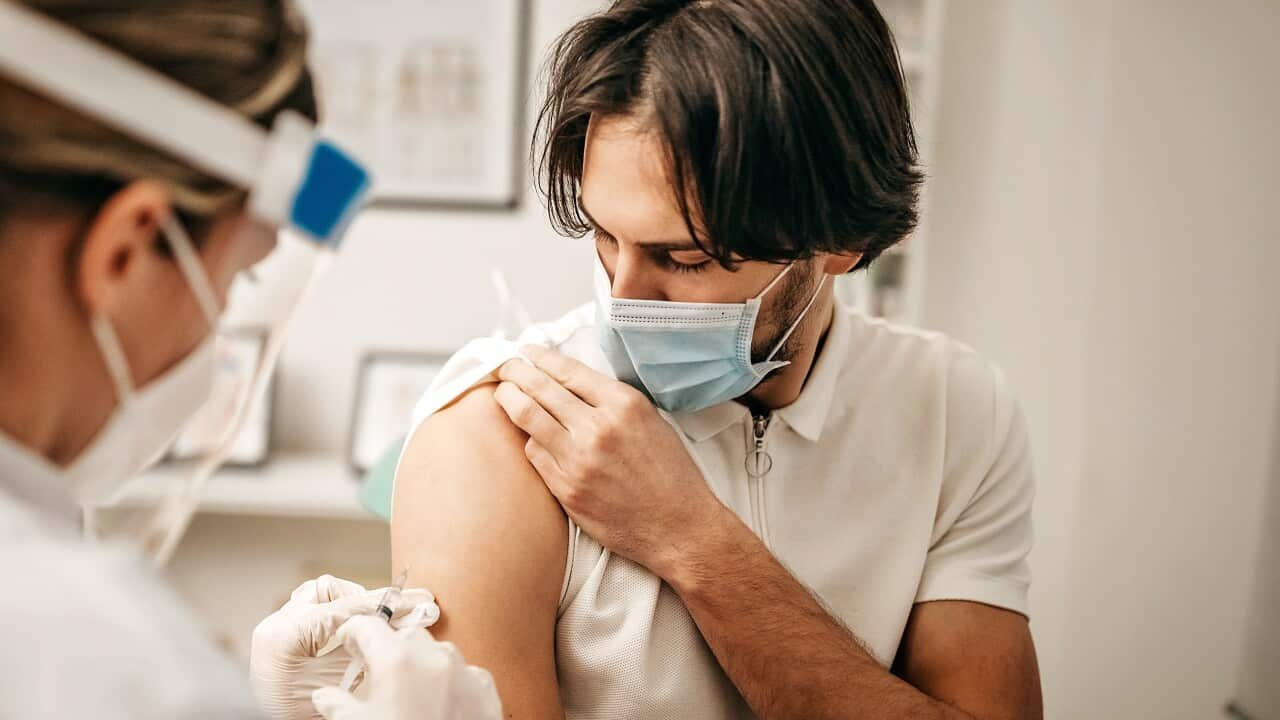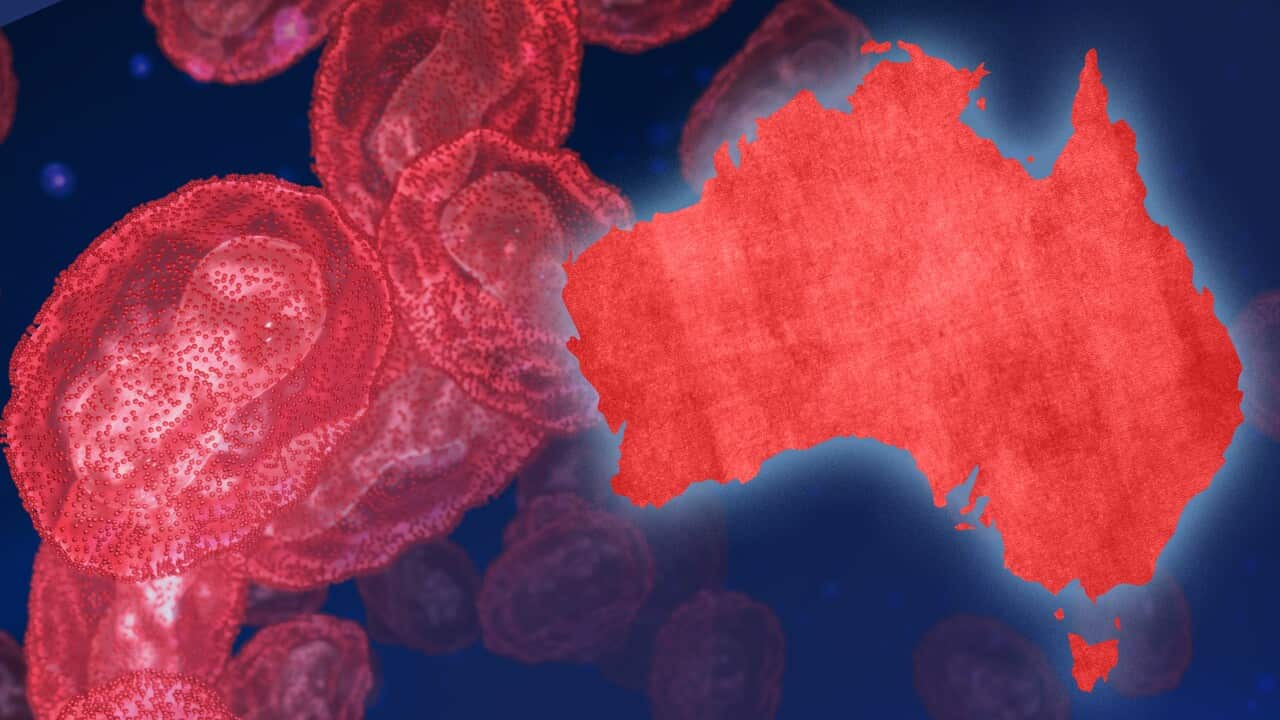Key Points
- The World Health Organisation has declared a global health emergency over monkeypox.
- Here's what we know about the outbreak.
Monkeypox is spreading across the world, including Western Australia where the first case was reported on Thursday in a returned overseas traveller.
On 23 July the World Health Organisation (WHO) declared a global health emergency over the outbreak amid a surge in infections since early May outside the West and Central African countries where the disease has long been endemic.
The United States declared it a public health emergency on Friday, with Xavier Becerra — the US Secretary of Health and Human Services — urging Americans to take monkeypox seriously.
As of Tuesday, Australia has 53 confirmed and probable cases of monkeypox. This includes 30 in New South Wales, 19 in Victoria, two in the ACT, one in Queensland and one in South Australia.
As cases grow, the federal government has secured hundreds of thousands of vaccine doses that are set to be rolled out soon.
What is monkeypox?
Monkeypox is a viral zoonosis, meaning it is a virus transmitted to humans from animals, including a range of rodents and non-human primates.
According to University of NSW epidemiologist Professor Raina MacIntyre, it is closely related to the virus that causes smallpox, but is clinically less severe.

A medical laboratory technician inactivates suspected monkeypox samples in Madrid, Spain. Source: Getty / Pablo Blazquez Dominguez
With the eradication of smallpox in 1980 and the subsequent ending of smallpox vaccinations, the WHO says monkeypox has emerged as the "most important orthopoxvirus for public health".
The first case of monkeypox in humans was identified in 1970 in the Democratic Republic of Congo in a nine-year-old boy, according to the WHO. Smallpox had been eliminated in the region two years earlier.
How dangerous is monkeypox?
There are two main strains of the monkeypox virus in central and west Africa.
"One [strain] has about a one per cent fatality rate, which is similar to COVID-19. And the other has about a 10 per cent fatality rate, which is similar to the first SARS," Professor MacIntyre said.
The current outbreak in non-endemic countries appears to be the less severe strain.
The WHO said about 10 per cent of monkeypox cases globally are admitted to hospital.
Australian Medical Association vice president Dr Chris Moy said that most cases are mild and include symptoms such as high fever, headaches, swollen lymph nodes, muscle and body aches and a blistery pox-type rash on the body.
People with monkeypox are generally infectious for up to 21 days, until the lesions are healed and symptoms no longer persist.
How is it spread?
Monkeypox can spread to humans through close contact with an infected person or animal, the WHO says. It is transmitted from one person to another by close contact with lesions, body fluids or with material contaminated with the virus.
Dr Moy said that unlike viruses such as COVID-19, it requires a "fair bit of contact, so it's not something that will spread like wildfire".
LISTEN TO

Monkeypox declared a global emergency
SBS News
24/07/202202:39
"It's actually quite hard to catch. Generally, it requires very close physical contact with somebody else who is infected with it and it goes through your skin, broken skin or through your eyes or nose," he told SBS News.
Associate Professor John Blakey — a respiratory physician at Sir Charles Gairdner Hospital — said people should take simple measures that have already become standard practice due to the COVID-19 pandemic, including maintaining physical distance, being cautious with coughing and sneezing, wearing masks in crowded public places and sanitising your hands.
He said people should also be aware that the virus can also spread by handling infected clothes and linen.
Who is at risk?
People at risk are those who have had close physical contact with someone infected, while they are symptomatic.
Professor Blakey said "we're all at risk of contracting a virus to which we don't have that kind of natural immunity".
The WHO's top monkeypox expert, Dr Rosamund Lewis, said as of late July, 99 per cent of all the monkeypox cases beyond Africa were in men and of those, 98 per cent involved men who have sex with men.
Professor Blakey said this was likely due to the mode of transmission rather than this community being more or less vulnerable to catching the virus.
"It seems as though there was a large spreader event … so that's why there seems to be a lot of reports of transmission between men who have sex with men," he said.
The United Nations’ AIDS agency (UNAIDS) has that some reporting on monkeypox has used language and imagery that "reinforce homophobic and racist stereotypes".
The body warns this could exacerbate stigma and undermine the response to the growing outbreak.
"Stigma and blame undermine trust and capacity to respond effectively during outbreaks like this one," UNAIDS deputy executive director Matthew Kavanagh said.
Thorne Harbour Health is a community organisation that supports LGBTIQ+ communities in Victoria.
The group's communications director, Colin Batrouney, said these narratives were "espoused during the first decades of the epidemic of HIV and AIDS with catastrophic effects both to gay men, their loved ones, and the community at large".
The WHO stresses the risk of monkeypox is not limited to people who are sexually active or men who have sex with men.
“Anyone who has close physical contact with someone who is infectious is at risk. Anyone who has symptoms that could be monkeypox should seek advice from a health worker immediately,” it says.
"One would hope that we are beyond that now," he said.
How has Australia responded?
The federal government has secured 450,000 doses, with the first delivery of 22,000 doses due to arrive in Australia within days.
The remainder of the vaccines will arrive later this year and into 2023.
Meanwhile, NSW will begin rolling out a monkeypox vaccine to high-risk groups next week.
The first stage of the vaccine rollout will start on Monday with 5,500 people targeted, including men who have sex with men, sex workers and people who are immunocompromised.
Another 30,000 doses will be rolled out in NSW by the end of September and 70,000 early next year.
The vaccine is a new generation of immunisation, compared to the smallpox jab which is also used to protect against monkeypox.
Mr Butler said the vaccine can be used to prevent the transmission of the monkeypox virus, but also as a post-exposure treatment.
"This vaccine is far more effective and certainly more user friendly for patients which may have compromised immunity," he said.
With AFP, Reuters and AAP.













